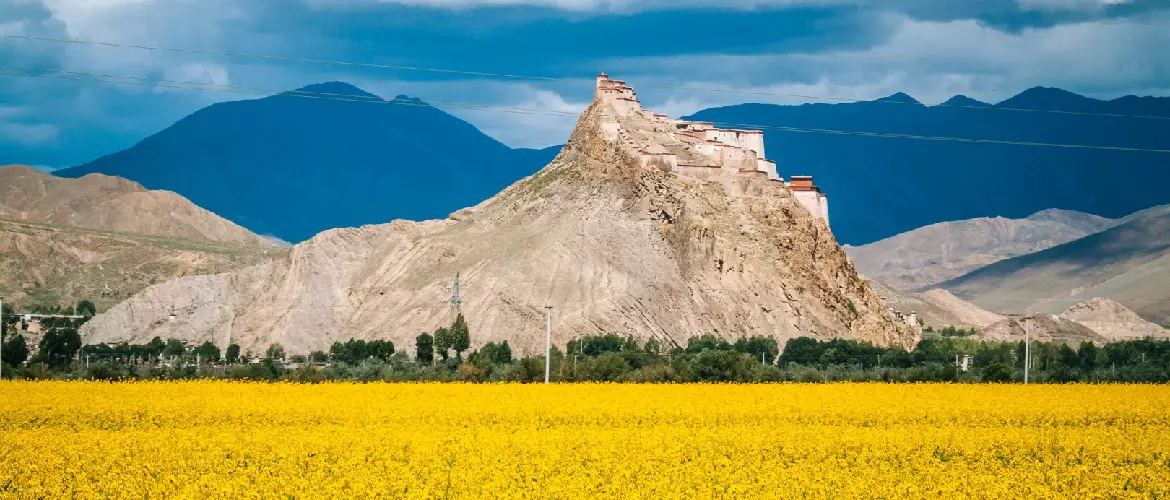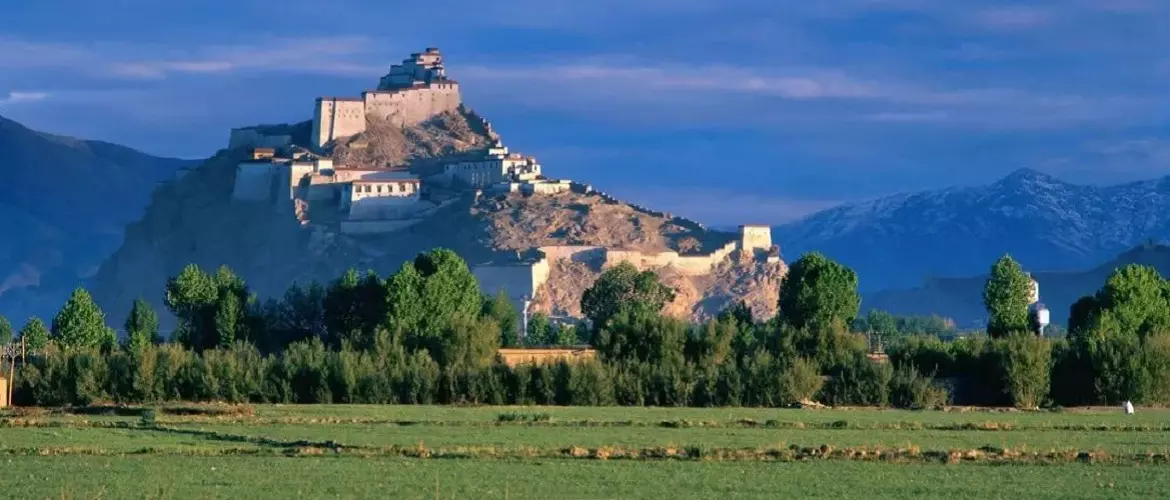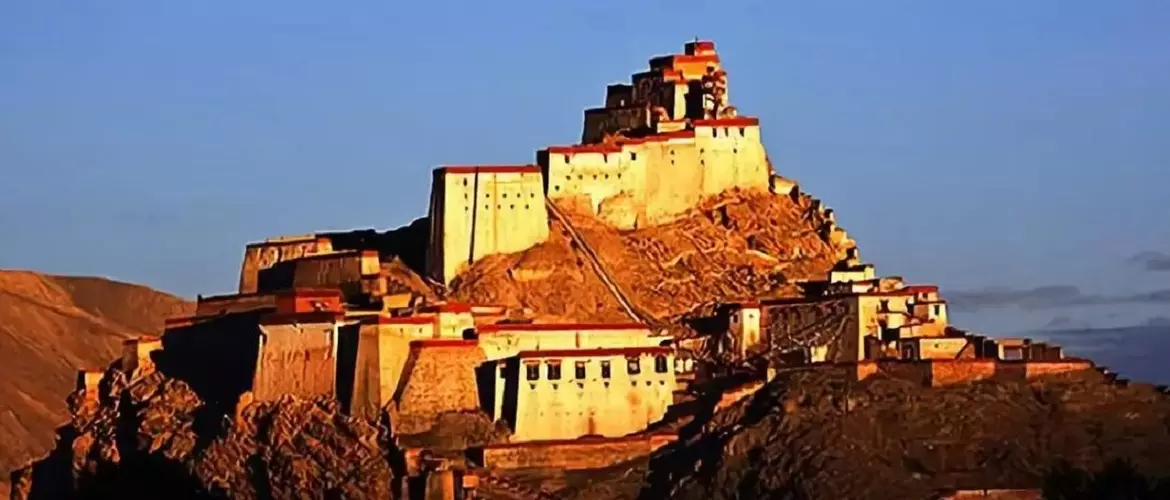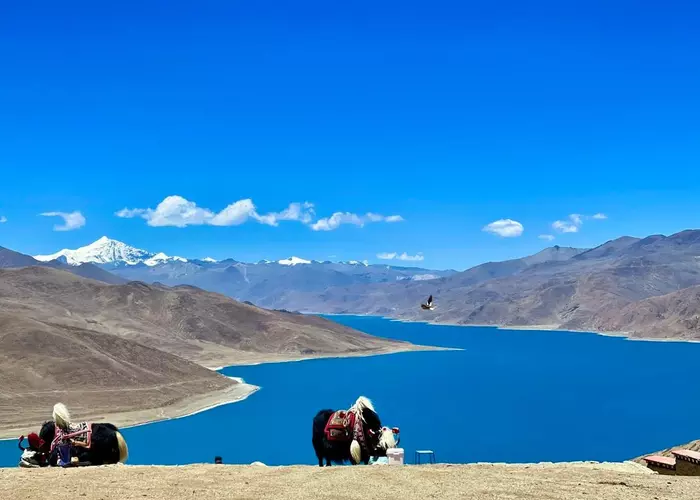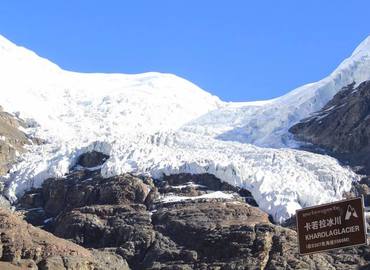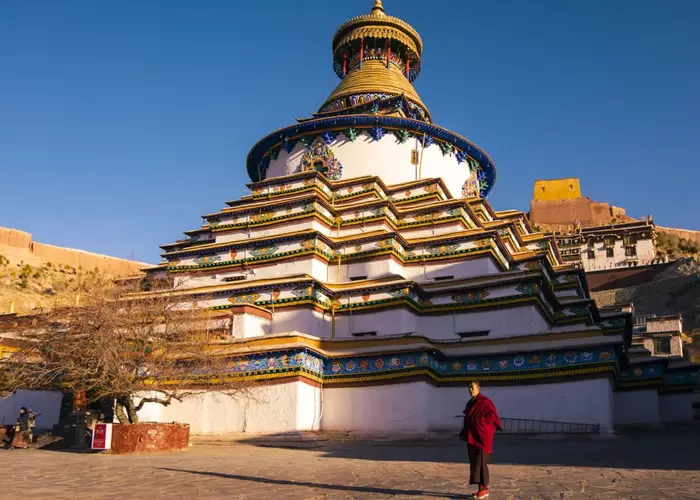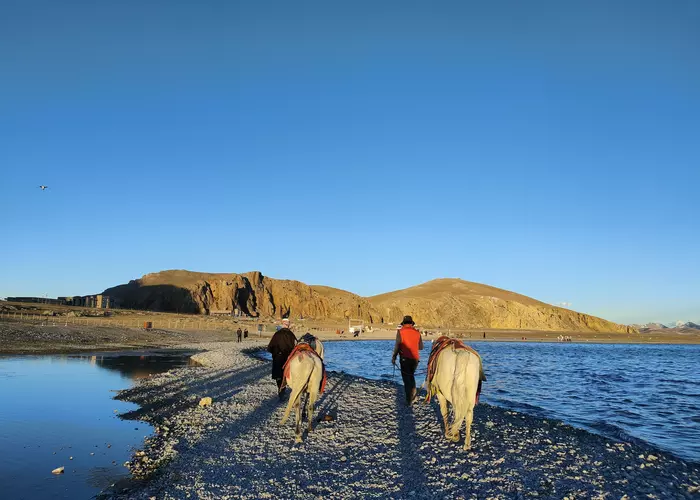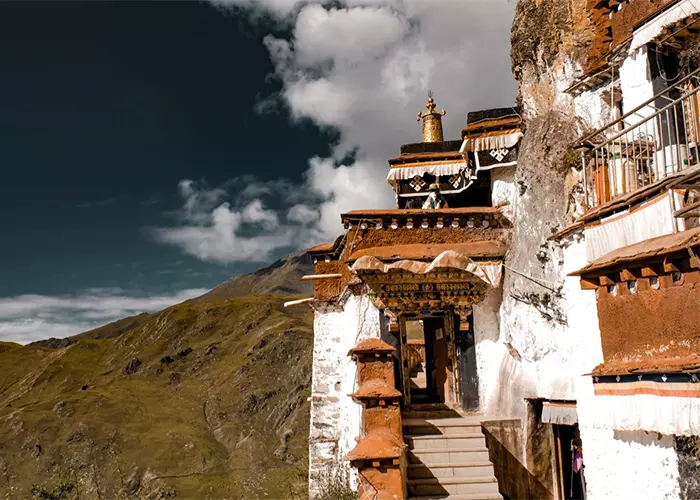Standing 307 kilometers away from Lhasa, Gyantze Dzong, which is also known as Gyantse Old Castle, is the center of Gyantse Town and it’s the highest building in the town. Different from other Buddhist sites in Tibet, Gyantse Dzong is famous for patriots.
History
This story took place in a fortress on a cliff with 125 meters high and an altitude of 4,020 meters. The British army invaded Gyangtse in 1904, during the 30th year of the reign of the Qing Emperor Guangxu. However, invaders were resisted by brave and patriotic Gyangtse soldiers and civilians. They defended their hometown with undeveloped guns, cannons and even bows and arrows in the fortress. In order to fight against the army, people built a fence with stones, which is 5 – 8 meters high and 4 meters wide. Other defenses were also built in the high terrain.
The early history of Gyangtse Dzong can be traced back to the 9th century. Pelkhor-tsen, the lord of Gyantse, built a small palace on the top of Kashan Hill. Afterward, it was expanded and rebuilt many times. Travelers can still see the ruin of ancient walls today, as well as some Newari-style and Gyants-style murals in the ancient palace.
What to See
As a scenic site that holds the history and culture of Tibet Dzong Culture, Gyantse Dzong is worth a visit. With important meaning and legendary stories, you can’t miss the choice to explore the spectacular fortress. After a 30-minute walk to the top of the Dzong, the view of the old town, Palcho Monastery, Kumba and Nyang Chu Valley will also impress you. It should be noted that a walk at a place that is located at 4,000 meters above sea level is much harder than a walk at a place with a low altitude. Walk slowly, and be careful of the slippery steps.
Jump Off Cliff
This sign is not a suggestion. The tough guardian lasted for three months, and the defenders ran out of supplies at last. Brave Tibetan warriors jumped from Zhongshan Mountain's north cliff and never surrendered to the British invaders. A monument was established on the cliff to remember them.
Anti-British Battery
Where Tibetan soldiers resisted British invaders, the cannon they used to fight against the British army was manufactured more than 100 years before the war.
Ambans’ Stone Tablet
It is a stone tablet carved in the Qing dynasty, during the reign of Emperor Qianlong. This stone recorded the diaries of Amban Song Yun and Amban He Ning, who perambulated the Gyantse region from the central government of the Qing Dynasty.
Gyantse Dzong Government Chamber
You can see statues of ancient Gyantse Dzong government officers who reappear at the scene of handling official affairs in this hall. There are also some precious ancient relics.
Dharma Temple
It is an ancient Tibetan monastery built in the Ming Dynasty, which is also called Dharma Temple. Inside the hall, there are many relics as evidence of the British army’s invasion.
Lhasa - Gyantse - EBC - Shigatse - Lake Namtso - Lhasa
Explore Highlights of Lhasa, gaze on the world’s highest peak - Everest and have a fabulous sightseeing trip to Namtso.
Lhasa–Tsetang–Shigatse–Namtso–Lhasa
Discover the mysteries of Tibetan Buddhism in Lhasa, Tsedang and Shigatse. Appreciate holy lakes of Yamdrok and Namtso.
Lhasa- Shigatse- Old Tingri to EBC Trek- Shigatse- Lhasa
Looking for adventure? You may love trekking on the roof of the world to explore the magnificent scenery of Mt.Everest.
Email response within 0.5~24 hours.


